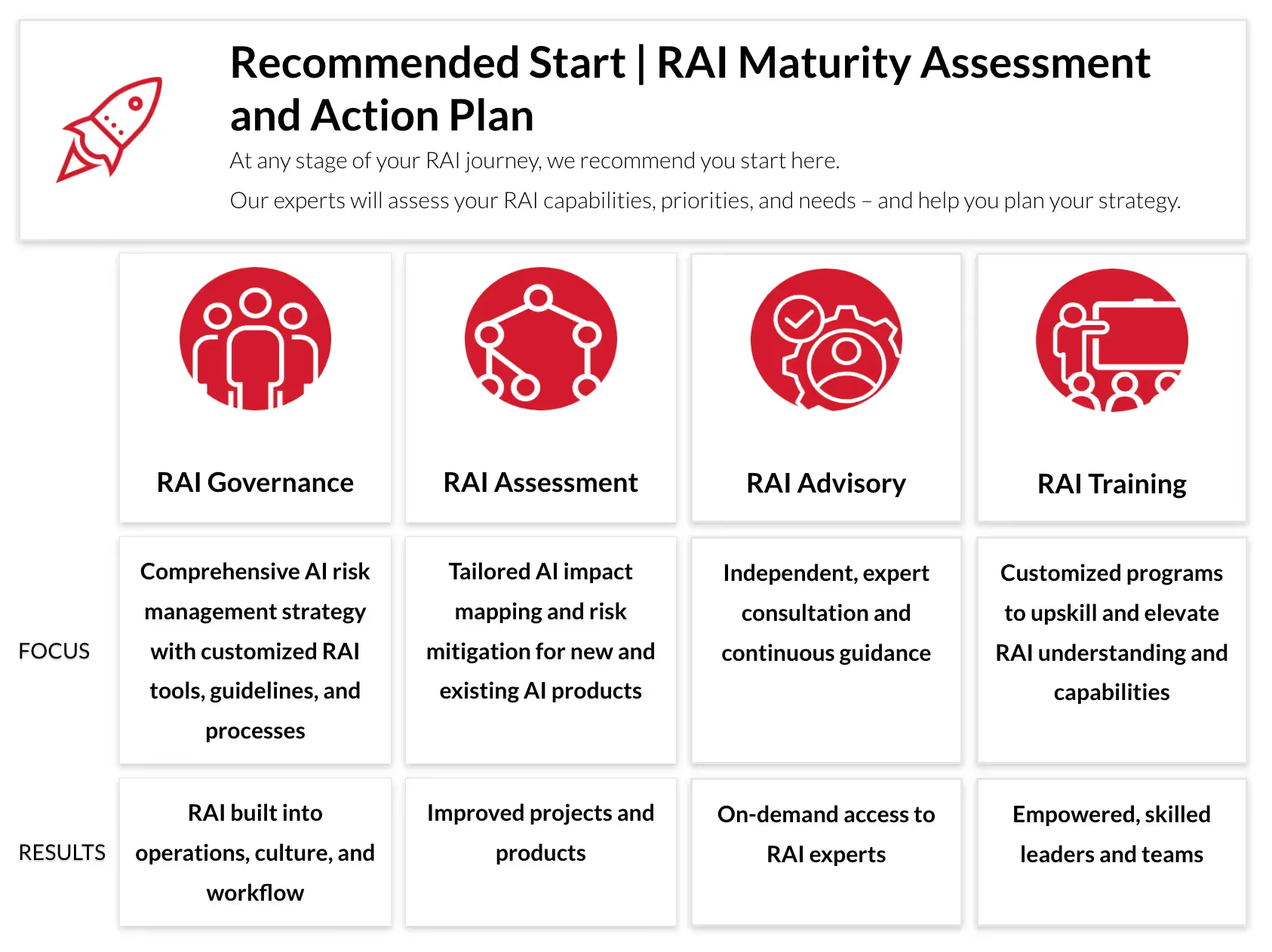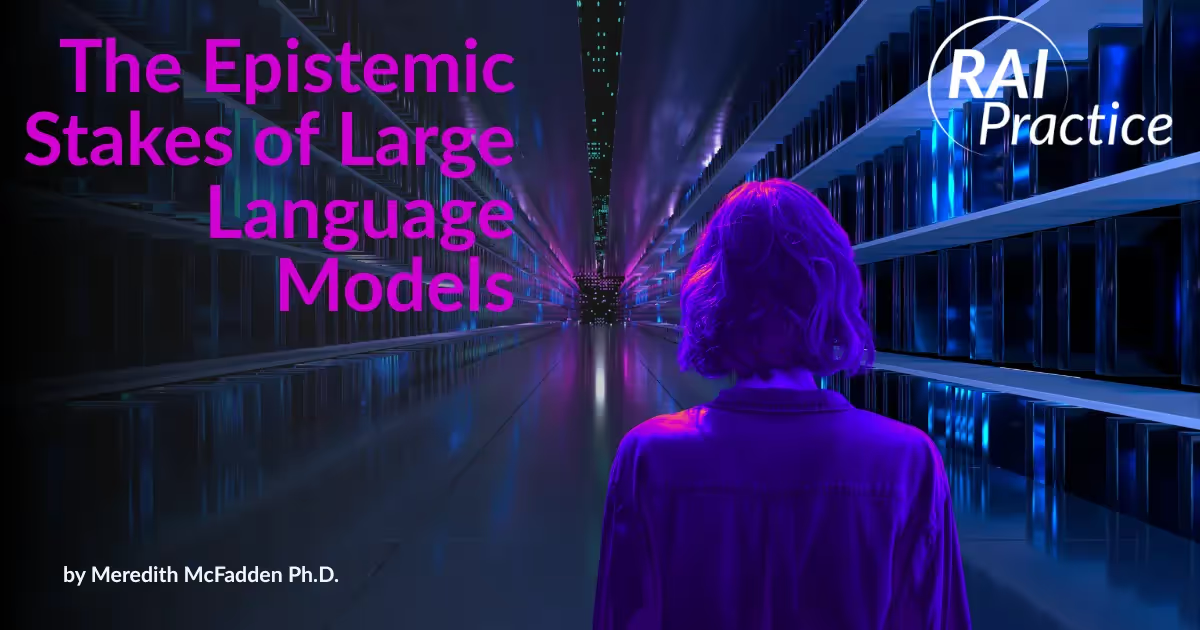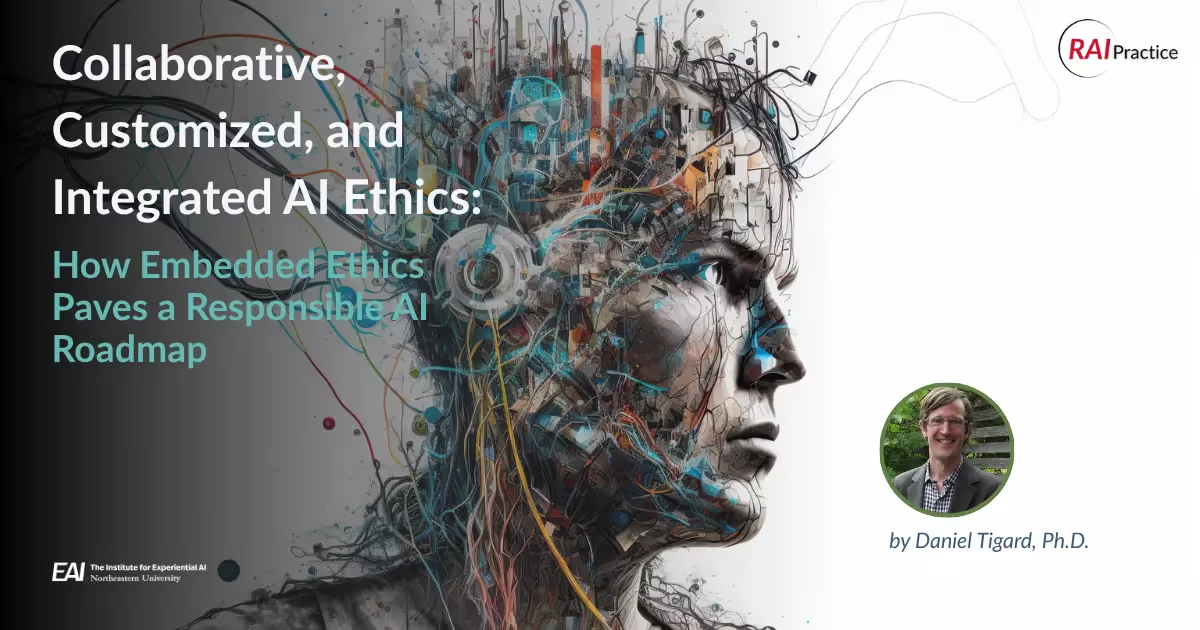RAI Radar: Is Walmart's Leap into AI Responsible?

This week in our Responsible AI (RAI) Radar series we're diving into Walmart's latest AI-powered advancements, as unveiled at CES 2024. From generative AI search features to AI replenishment tools and augmented reality (AR) platforms, Walmart is reshaping the retail experience. Let's explore how RAI principles should be applied in these ambitious projects:
RAI: What We’re Watching
As illustrated by the theme of CES this year, there is a lot of pressure in the market to deploy AI for a variety of purposes. But will applications like AI loss prevention and AR fitting rooms truly improve the human experience? Walmart will surely be monitoring its new AI products and services using a wide range of metrics, and we expect they have already faced tough design trade-offs between customer experience, universal accessibility, and sales performance, among other goals.
Data Ethics, Consent and Trust
Walmart’s vision for “adaptive retail” will both require and produce extensive data about consumers and their behavior. Ensuring the protection of this data and maintaining user trust is fundamental to Responsible AI practices. Consent checkboxes and long “terms and conditions” text are often not enough. In the case of shopping recommendations, for example, users want to be understood, not profiled or manipulated.

Bias, Fairness and Inclusivity
The diversity of Walmart’s customers means that any new AI model has to be designed and tested especially rigorously. Mainstream iterations of generative AI, in particular, are known to reproduce harmful biases and hateful language from broader culture. There’s also the fact that AI models simply won’t work for some people. Walmart’s AI initiatives should prioritize inclusivity and fairness, ensuring they are beneficial to all customers, regardless of their abilities, background, economic status, geographic location, or age.
Achieving Governing Principles
CEO Doug McMillon emphasized that Walmart is using “technology to serve people and not the other way around.” Along with consideration of AI's impact on jobs, this principled approach shows that Walmart is definitely thinking about RAI. However, the real test lies in operationalizing these high-level principles across an organization’s practices and business units, so that the impact of RAI can be seen through safer and more fulfilling user experiences.
Our experts at the Institute for Experiential AI have experience working with organizations to identify risks associated with the use of AI models and create a roadmap to deploying the technology responsibly. Need expert help with Responsible AI? Talk to us!



.avif)

